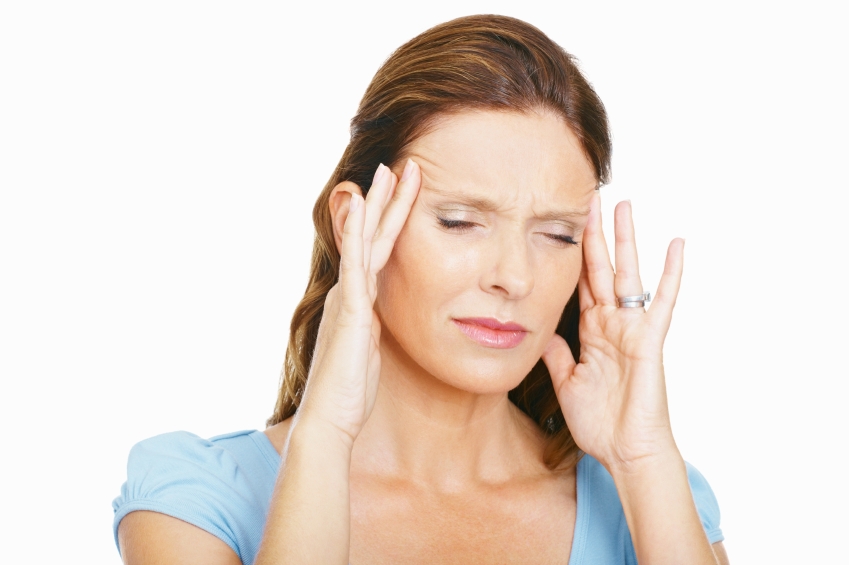


Tension headaches are the most common types of headache. They are characterized by a constant ache on both sides of the head accompanied by pressure behind the eyes and tightening of neck muscles. These headaches last for up to an hour and recur for several days. If tension headaches recur more than 15 times in a month, they are described as episodic-tension headaches. Although the cause is not well understood, conventional treatment comprises of over-the-counter painkillers. However, there are other alternative ways to tension headaches.

As stated earlier, tension headaches are usually treated with OTC medications. There are also prescription drugs that are used to treat tension headaches especially when the pain is severe and demands stronger medications. These include:
Pain relievers such as ibuprofen and aspirin are the first-line headache treatment. Medications such as naproxen (Naprosyn), indomethacin (Indocin) and ketorolac (Ketorolac Tromethamine) are prescribed for tension headaches as well.
Combination drugs are more effective than single-ingredient pain killers. Some are available over-the-counter, but there are those that need a prescription from your GP. Examples of combination drugs are aspirin or acetaminophen combined with caffeine or sedatives.
These types of drugs are usually recommended for clients who experience both migraines and tensionheadaches. Triptans are effective against such types of headaches. Although useful as well, narcotics are rarely used because they can lead to dependence.
Growing numbers of people are turning to non-conventional treatment for various illnesses and conditions. The following methods can be used to treat tension headaches:
Biofeedback is a modern technology that teaches a patient to control bodily functions that are generally involuntary or automatic. Sensors are attached to the body and to a monitoring screen. Biofeedback is also used to control tension headaches by teaching you to detect electric signals from your neck to your shoulder muscles. Thus you will be aware when you are about to get a tension headache and practice relaxation techniques that will avert the ache.
This way you will be able to prevent tension headaches before they occur because you are aware of your body signals. Biofeedback has been useful in preventing other conditions such as incontinence and high blood pressure as well.
This is therapy that teaches you to recognize situations that cause you stress, anxiety and tension and lead to tension headaches.
Massage therapy is effective in reducing muscle tension around the neck and shoulders. This practice may help reduce tension-type headaches.
Acupuncture is a non-conventional treatment method. A component of traditional Chinese medicine, acupuncture involves stimulating various points of the body by inserting thin disposable needles. The procedure produces little to no pain or discomfort. It has been said that acupuncture boosts the body's natural painkillers and may be useful as a tension headache treatment.
A stressful situation can lead to tension headaches. It is good to be organized and plan ahead to avoid stressful situations, especially at work. Always relax and breathe in and out if you find yourself in a stressful situation. You should also regularly take a step back and relax. Practice breathing techniques and other relaxation techniques.
Tension headaches can be relieved by use of heat or cold. Take a long warm shower to relieve tension from your neck and head. You can also put hot water in a hot-water bottle, heating pad or a hot towel and massage around your head. For cold treatment, wrap ice cubes or frozen vegetables in a cloth and place on the affected part.
Maintaining a good posture will do a lot to help prevent tension headaches by keeping your muscles relaxed. Always stand with your shoulders straight instead of slumping forward. Sit with your thighs parallel to the ground and neck straight.
Regular physical activity such as walking, running, jogging and swimming helps you to keep fit and straighten your muscles. You can also try yoga to help relieve stress.
Record the frequency of your headache every time it occurs. Jot down as much information as you can: what you were eating, where you were, or whether you were sitting or standing for a long time. This will help you to identify a pattern and to trace what triggers your headaches so as to take appropriate steps to address it. Although quite secondary, keeping a diary record can be useful in tension headache treatment.
Sleep for the recommended amount of hours, usually 7-9. Do not oversleep or not sleep enough. Eat a healthy balanced diet. Drink plenty of water. Reduce intake of alcohol, caffeine and sugar.
In cases where the headaches are frequent, your doctor may prescribe treatment although most have some side-effects such as drowsiness and constipation. Other medications are known to reduce the frequency and severity of tension-type headaches.
It usually takes time for the preventative medication to work as it builds up in your system. You will therefore need to be patient. And don’t worry if you don’t notice immediate effects of the drugs. While on preventative medication, avoid overuse of painkillers as it may interfere with the action of preventive medicine.